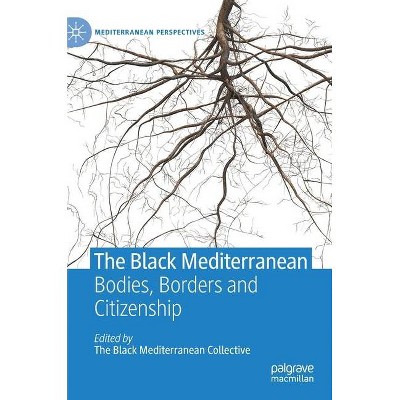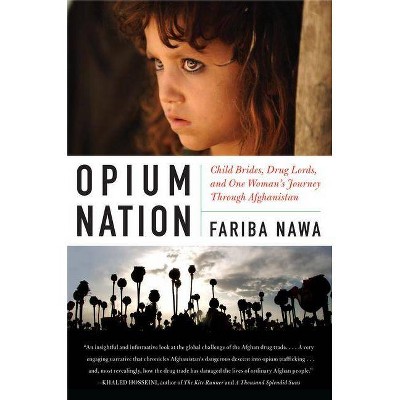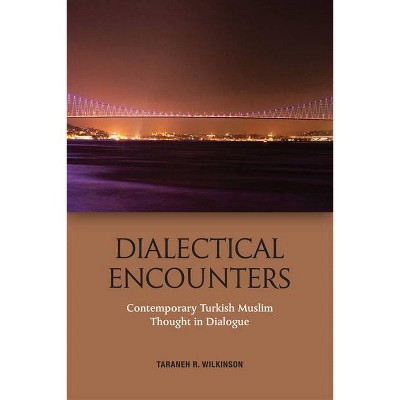Mediterranean Encounters - by Fariba Zarinebaf (Hardcover)

Similar Products
Products of same category from the store
AllProduct info
<p/><br></br><p><b> About the Book </b></p></br></br>"Mediterranean Encounters traces the layered history of Galata--a Mediterranean and Black Sea port--to the Ottoman conquest, and its transformation into a hub of European trade and diplomacy as well as a pluralist society of the early modern period. Framing the history of Ottoman-European encounters within the institution of ahdnames (commercial and diplomatic treaties), this thoughtful book offers a critical perspective on the existing scholarship. For too long, the Ottoman empire has been defined as an absolutist military power driven by religious conviction, culturally and politically apart from the rest of Europe, and devoid of a commercial policy. By taking a close look at Galata, Fariba Zarinebaf provides a different approach based on a history of commerce, coexistence, competition, and collaboration through the lens of Ottoman legal records, diplomatic correspondence, and petitions. She shows that this port was just as cosmopolitan and pluralist as any large European port and argues that the Ottoman world was not peripheral to European modernity but very much part of it"--Provided by publisher.<p/><br></br><p><b> Book Synopsis </b></p></br></br><i>Mediterranean Encounters</i> traces the layered history of Galata--a Mediterranean and Black Sea port--to the Ottoman conquest, and its transformation into a hub of European trade and diplomacy as well as a pluralist society of the early modern period. Framing the history of Ottoman-European encounters within the institution of <i>ahdnames</i> (commercial and diplomatic treaties), this thoughtful book offers a critical perspective on the existing scholarship. For too long, the Ottoman empire has been defined as an absolutist military power driven by religious conviction, culturally and politically apart from the rest of Europe, and devoid of a commercial policy. By taking a close look at Galata, Fariba Zarinebaf provides a different approach based on a history of commerce, coexistence, competition, and collaboration through the lens of Ottoman legal records, diplomatic correspondence, and petitions. She shows that this port was just as cosmopolitan and pluralist as any large European port and argues that the Ottoman world was not peripheral to European modernity but very much part of it.<p/><br></br><p><b> From the Back Cover </b></p></br></br>"An outstanding work in early modern Mediterranean history, Fariba Zarinebaf's <i>Mediterranean Encounters</i> explores commercial, legal, and cultural relations in Galata with depth and vigor. This fascinating analysis brings to life the rich history of Galata's inhabitants--Muslims, Christians and Jews--and carefully examines their relationship to the empire in which they lived, as well as to the empires around them, their commerce, their trading relations, their leisure practices, and their everyday life. Offering a rich and sophisticated reading of sources in three languages, and incorporating research methodologies from microhistory, legal history, urban history, and gender studies, <i>Mediterranean Encounters</i> is a vivid and fascinating history of the city of Istanbul. A marvelous read."--Orit Bashkin, Professor of Modern Middle Eastern History, University of Chicago <p/> "Galata: port of Istanbul, Ottoman-European diplomatic hub, storied home of Istanbul's nightlife. And yet few comprehensive historical accounts exist. Zarinebaf's work fills this void in masterly fashion. Her deeply researched book shows us the legal, commercial, and social characteristics of this essential cosmopolitan center in the crucial early modern period."--A. Holly Shissler, Associate Professor of Ottoman and Modern Turkish History, University of Chicago <p/> "In <i>Mediterranean Encounters</i>, Fariba Zarinebaf charts the rise of early modern Istanbul as a commercial center, and its engagement with European imperial powers. Unedited court records vividly bring to life the bustling cacophony of the Ottoman city in all its grittiness and complexity."--Brian A. Catlos, Professor of Religious Studies, University of Colorado, Boulder <p/> "Zarinebaf shows us Ottoman Galata as we have not seen it before, over time and in depth. Her detailed vision of the early modern port highlights its intercommunality. Especially illuminating are her nuanced treatments of the implementation of Ottoman-French treaties and of the interactions among locals and foreigners."--Palmira Brummett, Visiting Scholar in History, Brown University <p/> "Fariba Zarinebaf takes her readers on a grand tour of Galata's pluralist past and cosmopolitan character. Galata has long deserved a history of its own, and it could not have wished for a better chronicler than Zarinebaf."--Maurits van den Boogert, PhD, author of <i>Aleppo Observed</i> and <i>The Capitulations and the </i><i>Ottoman Legal System</i> <p/> <br><p/><br></br><p><b> Review Quotes </b></p></br></br><br>"Chapters are each long and detailed, grounded in archival detail, and often threading together several related but distinct topics."-- "Journal of Interdisciplinary History"<br><br>"Zarinebaf's work offers historians and social scientists a refreshing glimpse of how individuals and small social encounters both fuel political economic affairs, and also get swept away by them. . . . [the] book offers important scholarship."-- "Association for the Study of the Middle East and Africa"<br><p/><br></br><p><b> About the Author </b></p></br></br><b>Fariba Zarinebaf</b> is Professor of History at the University of California, Riverside. She is the author of <i>Crime and Punishment in Istanbul, 1700-1800 </i>and coauthor with John Bennet and Jack L. Davis of <i>A Historical and Economic Geography of Ottoman Greece: The Southwestern Morea in the 18th Century</i>.
Price History
Price Archive shows prices from various stores, lets you see history and find the cheapest. There is no actual sale on the website. For all support, inquiry and suggestion messagescommunication@pricearchive.us




















